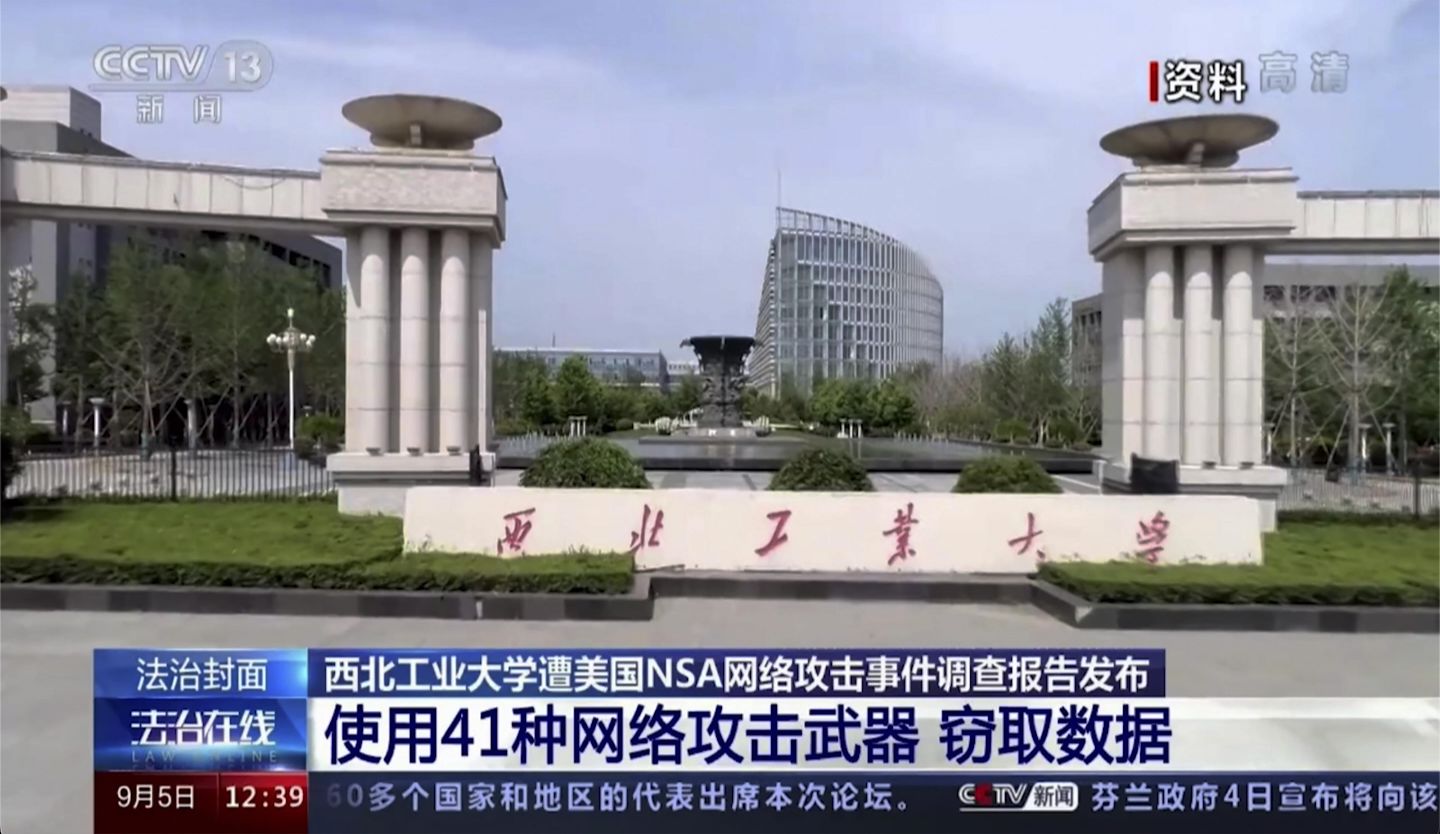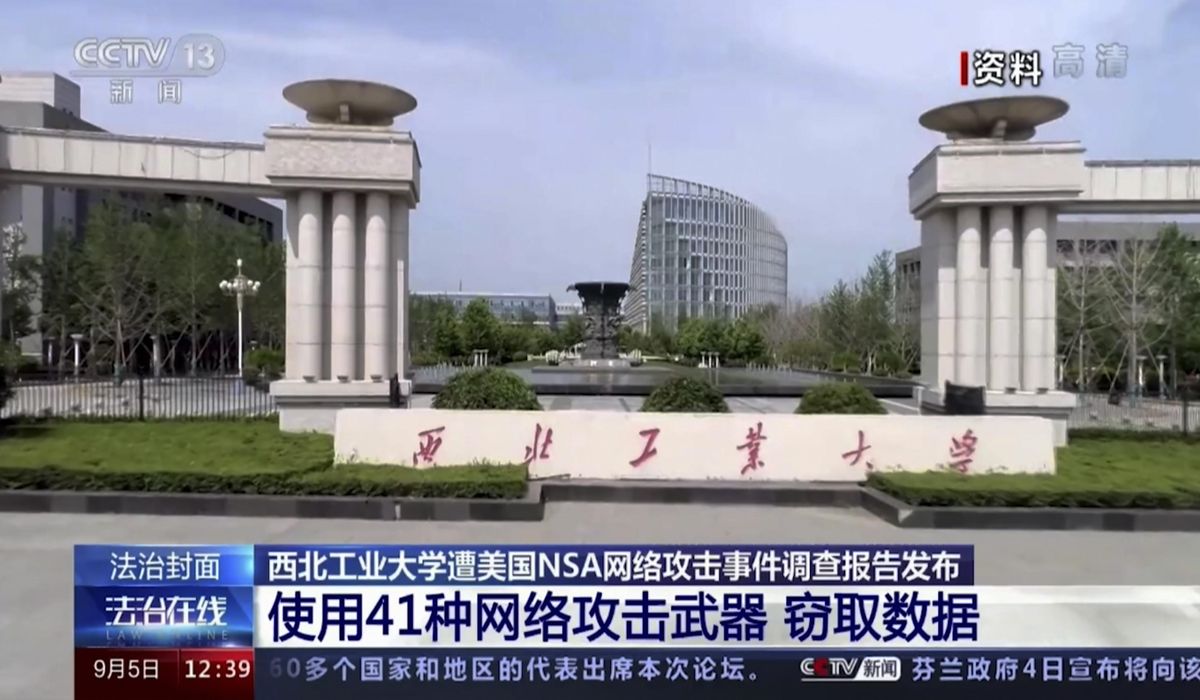

Beijing accused the U.S. of infiltrating computers at a university in China believed to conduct military research.
It’s the type of cyber attack that the U.S. often accuses China of committing.
China’s National Computer Virus Emergency Response Center said it determined that the U.S. National Security Agency was responsible for breaching the network of Northwestern Polytechnical University in June.
Chinese Foreign Ministry spokesperson Mao Ning said in a statement the NSA engaged in cyberattacks and data theft against Chinese people including more than 1,000 operations against the university.
“As the most powerful country in cyber technology and capability, the U.S. must immediately stop abusing its tech strength for cyber theft and attacks,” Ms. Ning said on Twitter.
The National Computer Virus Emergency Response Center said the NSA used proxy servers across 17 nations including Japan, Poland, South Korea and Ukraine to launch the cyberattack that leveraged zero-day vulnerabilities, which are previously undiscovered flaws exploited by hackers.
The U.S., however, has said China is responsible for several hacks and attacks compromising Americans’ security and for siphoning intellectual property.
Last year, the U.S. government shared new details of Chinese cyberattacks on U.S. critical infrastructure starting a decade earlier, revealing China-sponsored efforts against U.S. oil and gas companies from December 2011 to 2013. The Biden administration said the federal government notified victims and others about the attacks in 2012 but waited to make it public until 2021.
The Biden administration also attributed hacks of Microsoft Exchange servers to China last year and the Justice Department indicted four Chinese cyberattackers.
China is “almost certainly” capable of disrupting critical infrastructure services involving oil and gas pipelines and rail systems, according to the Office of the Director of National Intelligence 2022 Annual Threat Assessment.
“We assess that China presents the broadest, most active, and persistent cyber espionage threat to U.S. government and private sector networks,” the assessment said. “China’s cyber pursuits and export of related technologies increase the threats of attacks against the U.S. homeland, suppression of U.S. web content that Beijing views as threatening to its control, and the expansion of technology-driven authoritarianism globally.”
FBI Director Christopher A. Wray sounded the alarm about China’s industrial espionage in July 2022 in a speech at the London headquarters of MI5, the U.K.’s domestic intelligence agency. Mr. Wray warned the business community that China is set on stealing tech and undercutting businesses to take over their markets.
The NSA declined to comment on China’s hacking accusations.
• This article was based in part on wire service reports.
